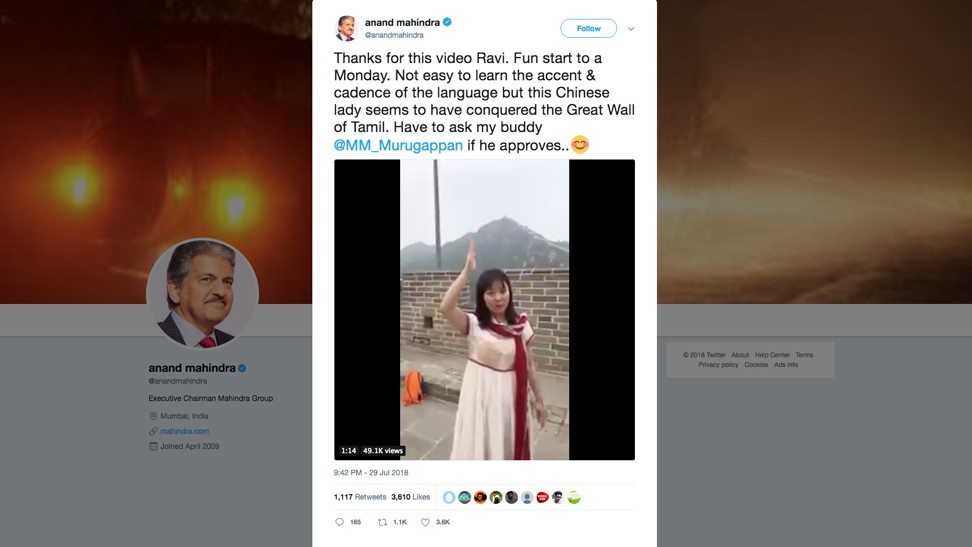
Chinese woman who conquered the ‘Great Wall of Tamil’ uses it to build bridges
Tamil language video introducing the landmark wins a warm response from Indian internet users
A video of a Chinese woman introducing the Great Wall in fluent Tamil for a state-owned broadcaster has been praised in India after it captured the imagination of a leading tycoon.
Anand Mahindra, executive chairman of Mumbai-based conglomerate Mahindra Group, shared the video with his 6.7 million Twitter followers saying: “Not easy to learn the accent & cadence of the language but this Chinese lady seems to have conquered the Great Wall of Tamil.”
The two-minute video shared shows the woman wearing an off-white anarkali suit, a popular women’s outfit in Southeast Asia, and starting the tour with the Tamil greeting “vannakam”.
Mahindra’s post had been viewed around 50,000 times and attracted more than 3,600 likes as of Thursday morning.
Most of the over 160 comments his tweet received were from Indian internet users full of praise for her mastery of one of their languages.

One Twitter user, Reginold Joseph, wrote: “I feel proud that Tamil language has so much reach in China and in other parts of the world.”
Tamil is one of the oldest languages in the world and is mainly spoken in southern India, Sri Lanka and Singapore.
Airbnb’s Great Wall of China competition crumbles to nothing
But other web users who did a little digging found out that the woman was an employee of China Radio International, a state-owned international broadcaster.
The broadcaster, which has nearly 70 overseas radio stations in more than 60 languages, is intended to increase Chinese influence overseas.
CRI Tamil has posted a series of videos on Facebook since last month, documenting the woman, known as Nihlani, introducing Chinese culture and attractions.

